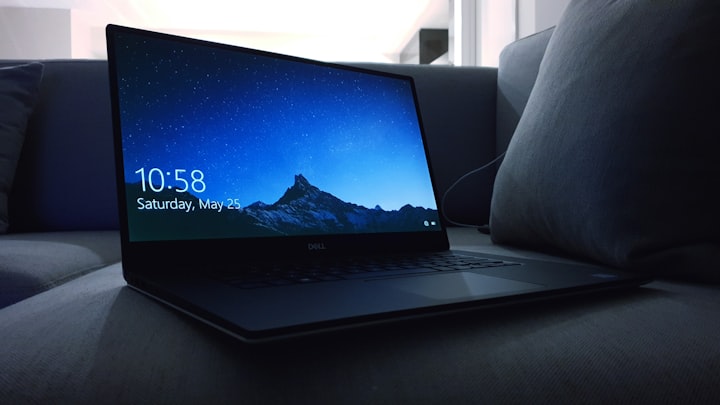Best natural moisturizer for oily skin
Best natural moisturizer for oily skin

The transaction fee for cryptocurrency transactions will be much lower compared to the traditional financial system. Data miners derive their income from the cryptocurrency network and earn less than the transaction fee charged for each completed transaction.
The cryptocurrency ecosystem has the potential to make the transfer of assets and transactions available to a large market for willing consumers, but the necessary infrastructure (digital and regulatory) is yet to be developed.
While Bitcoin and others if you have never used facial oil but have dry skin or acne, this is a great opportunity to try a high-quality facial oil.
Many people are concerned about using oil that the follicle likes but some options can make a big difference if your skin is prone to manure. Non-comedogenic oils are a problem for many people with acne-prone skin and not all of them work for everyone. Here are some of my favorite oils and other essential oils for acne and acne that are suitable for everyone and I think they are a great start to making your acne-prone skin.
For people with sensitive skin, the ability to adapt moisture to their needs can change lives. This can be achieved by using the best moisturizer for acne-prone skin. Depending on the skin type, natural facial moisturizers are best for acne-prone skin as mentioned above.
We have found seven natural and natural facials - which moisturize all skin types which is the best way to achieve natural lightness on the skin. Many natural moisturizers for choosing sensitive skin have stopped boasting natural ingredients that soften the skin naturally. Check out the list of ingredients and in some cases, their recipes block the holes.
If you have sensitive or acne-prone skin, make sure your moisturizer is hypoallergenic to reduce the chances of overdose and other irritants and that it is not comedogenic. To be honest, I avoid wearing this kind of makeup because I'm afraid it will make my skin look bigger than it already is. Making your own cosmetics does not have to be complicated and can save you a lot of money.
Another way to ensure that a natural moisturizer has the right balance is to choose a product based on body parts. The needs of your skin and concerns should be considered when choosing the right ointment.
The ointment can be separated from the amount of oil and water it contains, says Dr. Massick. Oily skin moisturizers and comedogenic substances do not clog your pores and can prevent excess oil and acne formation.
Natural examples of moisturizing oily skin without comedogenic substances are shea butter, jojoba oil, lavender oil, aloe vera gel, olive oil, honey, and almond oil. Oil is an active ingredient in one of the best moisturizing skin oils on the market. It helps to regenerate dead cells and cleanse the face, and it has antibacterial properties.
This oil helps protect and regenerate cells from free sun radicals and helps to soften the skin. Combined with healthy natural ingredients, olive oil provides an effective agent for cleansing and moisturizing the skin.
If you have oily skin all the time, you may urgently need a moisturizer in your skincare system. Rosehip oil can help strengthen your skin and reduce the scars caused by acne.
Effective face creams: Green tea is full of antioxidants and lemons to control fatty acids. Facial washing and cleansing can remove your skin from natural oils. Use a simple moisturizer after bathing as it helps restore the natural balance of your skin.
Honey and green tea help to soften your skin and moisturize your oily skin. To make the perfect blend, this ointment mixes lavender, essential oil, and jojoba oil. Jojoba helps balance natural oils on the skin as it absorbs more quickly and leaves no oily feeling.
Its powerful blend of Aloe vera, Jojoba Oil, and Rose essential oil makes it an amazing oily skin moisturizer. Rose essential oil cleanses the skin, removes impurities, while aloe vera soothes acne and heals wounds and burns. Essential oils cleanse and remove impurities from your skin, while aloe relieves acne and healed scars, and aloe vera is packed with anti-inflammatory and antioxidants that keep the skin moisturizing without oily, making it one of the last moisturizers for oily skin.
Coconut oil is a type of oily skin that works best on acne and oily skin and works as a night cream. Coconut oil reduces scarring, aloe vera prevents future outbreaks, and cleans your pores so that impurities do not accumulate due to the anti-bacterial properties of coconut oil. Kukui oil is amazing for skin problems, while hazelnut oil is known as an astringent and reduces pore size.
Tamanu oil is rich in polyphenols and antimicrobials, making it a great skin healer. Rosemary essential oil is known to promote hair growth, but it is also an excellent ingredient in oily skin and acne as it helps protect skin cells from damage from free radicals in the sun. As a great moisturizer for oily skin, it is best to incorporate rosehip oil into your daily skincare program because of the amazing benefits it offers.
The combination of these three powerful ingredients makes an amazing natural moisturizer for oily skin types. Honey itself is a natural moisturizer that helps keep the skin moist but oil-free. Antibodies and bee antioxidants are also beneficial and can act as a natural compound for oily skin [11], and are readily available at home.
While olive oil is not suitable for sensitive skin types, it is a good moisturizer. To combat decay, wrinkles, and fine lines can be added to the mixture with apricot kernels, jojoba, and argan oil. With a simple texture, argan oil sinks to the skin and does not feel oily.
Hemp seed oil not only causes cracks or constipation but can also help eliminate it. You should not use sunflower oil, which is high in oil and can clog pores.
cryptocurrencies are embraced by a growing number of payment platforms, the number of places where cryptocurrencies can be traded for real goods and services remains limited. Unlike many currencies around the world, cryptocurrencies are stores of limited exchange rates and limited offers. Cryptocurrencies are used for decentralized control, as opposed to medium-sized digital currencies or centralized banking systems.
To use decentralized control, cryptocurrency uses distributed ledger technology (blockchain), which acts as a database for public finance transactions. An important attraction of Bitcoin and other cryptocurrencies is that blockchain technology is used to keep an online record of all transactions and provide secure registry data, which is shared and agreed upon by the entire network of individual nodes (computers) that keep a copy of the register. Cryptocurrencies use stamping systems from time to time to verify the authenticity of transactions added to the blockchain register without the need for a trusted third party.
Mining is where new digital currency units are added to the world to ensure transactions. Data miners (remote, different computer systems that do number encryption to generate bitcoin and other cryptocurrency networks) earn their earnings from the cryptocurrency network without any involvement in sales, so no fees are charged. There are no foreign payments unless you use a third-party service to store your cryptocurrency wallet. One of the benefits of digital money is that it is more likely to go into transaction financing than traditional financial systems.
Cryptocurrencies are virtual currencies that do not have a central bank and are therefore digital currencies (e-cash is another example of digital currency). Once you have bought a wallet, you can buy cryptocurrencies on an open exchange and use them for a variety of transactions. Every type of digital currency has many advantages: cryptocurrency (Bitcoin) is a virtual currency that is part of a digital currency.
A cryptocurrency is a type of digital asset or an intangible digital currency that uses sophisticated cryptography [1] a type of encryption called cryptography to protect and secure transactions and to control the creation of new currency units. A new and promising addition to the digital payments sector is cryptocurrency. A cryptocurrency is an exchange method designed to exchange digital information, unlike standard currencies such as the USD. A cryptocurrency, cryptocurrency, or crypto digital asset is designed to serve as a means of exchange where individual identities are recorded and stored in a register (which can be in the form of computer data), using robust cryptography to access transaction records, manage additional currency generation and verify coin ownership transfer.
The cryptocurrency, powered by blockchain technology, is secure due to the medium-sized public environment of ledger technology delivered and the encryption process that supports each transaction.
This transaction was made possible through a public cryptocurrency network known as the blockchain. Cryptocurrency transactions are recorded on a public list called blockchain, and technology allows them to exist. Anyone can join and participate in the blockchains transaction database available to all other cryptocurrency holders, all details of each transaction and the people involved are protected by cryptography, which forms the basis of the cryptocurrency name.
Instead of establishing a central authority, many cryptocurrencies use a network that allows users to perform their tasks. In the modern cryptocurrency system, the user's wallet is a public account address and a private key that can only be used by a known owner to sign a transaction. For cyber security, cryptocurrencies exist because the credentials are limited to a secret key used to verify transactions.
One of the great advantages of cryptocurrency is that everything you do is a separate exchange between the two parties and the terms and conditions are always negotiated and agreed upon in advance. If you own a cryptocurrency and own an account, you can reduce the time and cost of making an asset. Cryptocurrencies can be used at any time to exchange goods and services, and there are no tax-free transactions.
It is easier for interested customers to make transactions and transfers of goods through the cryptocurrency ecosystem. Nearly two billion people have access to the Internet, but they have no right to use traditional exchanges and have no knowledge of the cryptocurrency market and there are other electronic money systems where your account belongs. Bitcoin was the first cryptocurrency-enabled cryptocurrency launched in 2009. The well-known and widely used Blockchain supports transactions between cryptocurrencies such as Bitcoin and Ethereum. The two are connected and often confused, but Bitcoin is one of the many blockchain applications.
Blockchain, a public ledger technology that supports cryptocurrency, has the potential to disrupt a variety of transactions in addition to traditional payment systems. As cryptocurrencies are widespread and Indian regulators operate through a legal framework to regulate cryptocurrencies such as Bitcoin, the central bank of India has established its own blockchain, leading to its cryptocurrency called "Lakshmi", which allows companies to change how they operate. Reliable encryption methods are used in cryptocurrency transactions to protect against fraudulent hackers.
About the Creator
Cs Sapkota
#Blogger





Comments
There are no comments for this story
Be the first to respond and start the conversation.